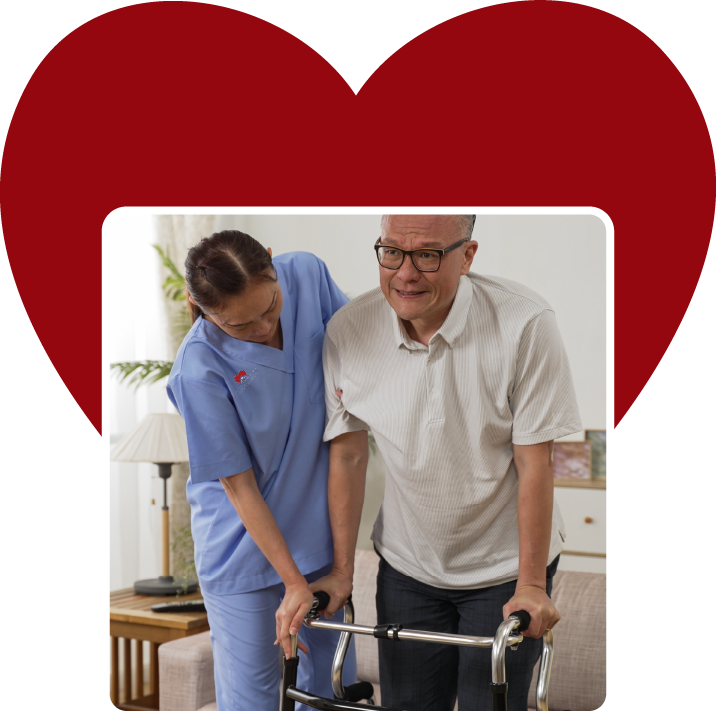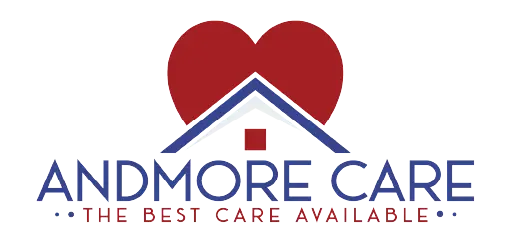Stroke / Recovery
Andmore Care’s Stroke and Recovery Services

The Path to Recovery Begins Here with Andmore Care
At Andmore Care, caregivers receive specialized training to identify stroke symptoms beyond the F.A.S.T. criteria (Face drooping, Arm weakness, Speech difficulty, and Time to call emergency services). This training prepares caregivers to act quickly and confidently, recognizing and responding to these additional symptoms that may indicate a stroke in progress:
Sudden Numbness or Weakness – Caregivers are trained to recognize sudden numbness or weakness, especially if it affects the face, arm, or leg on one side of the body, as this is a common sign of stroke.
Sudden Confusion or Trouble with Speech – Caregivers learn to look for signs of sudden confusion, difficulty speaking, or difficulty understanding language, recognizing that these are red flags requiring immediate attention.
Vision Disturbances – Training includes awareness of vision issues, such as sudden trouble seeing in one or both eyes, as caregivers may need to act if they notice a client’s unexpected difficulty with vision.
Balance and Coordination Problems – Caregivers are taught to detect sudden issues with walking, dizziness, or loss of coordination, which are often associated with stroke onset.
Severe Headache – If a client suddenly experiences a severe headache without an identifiable cause, caregivers understand that this could be an early sign of a stroke and know the importance of rapid response.

Andmore Care is a trusted
PASSPORT provider.
What is a Stroke?
A stroke is a medical condition that occurs when there is a sudden interruption in the blood supply to the brain. This disruption can be caused by either a blockage in a blood vessel (ischemic stroke) or the rupture of a blood vessel (hemorrhagic stroke). Without adequate blood flow, brain cells begin to die, which can lead to loss of brain function and potentially long-term disability or death. (Explore more resources.)
Documenting Onset Time of Stroke and Its Importance
Andmore Care caregivers are trained to note the precise time that any symptoms first appear, as immediate treatment options are available that can significantly impact a stroke’s long-term effects if administered soon after onset. By documenting and communicating these details to emergency medical professionals, caregivers play a crucial role in enhancing the chances of a better outcome for the survivor.
This training emphasizes the importance of quick, accurate observation and response, ensuring caregivers are prepared to act decisively in critical situations to support the health and well-being of those in their care.
At Andmore Care, we understand that the impact of a stroke can be profound, affecting both short- and long-term well-being. Depending on the severity and the area of the brain affected, stroke survivors may experience challenges with language, vision, memory, and spatial awareness, along with potential physical limitations like paralysis. These changes can be deeply disheartening for survivors, leading to frustration and even depression as they navigate new limitations.
For loved ones who step into caregiver roles, the journey can be equally challenging. They must adapt to providing physical, emotional, and mental support while managing everyday responsibilities—often including medical bills, appointments, meal preparation, laundry, and grocery shopping. The added responsibilities can be overwhelming, particularly for caregivers who are also raising families or working full-time.

If you or a loved one are navigating the challenges of stroke recovery, Andmore Care is here to help. Our compassionate team offers personalized care to support your recovery journey. To learn more about our services or to schedule a consultation, contact us today. Let us help you find assistance and strength every step of the way.
